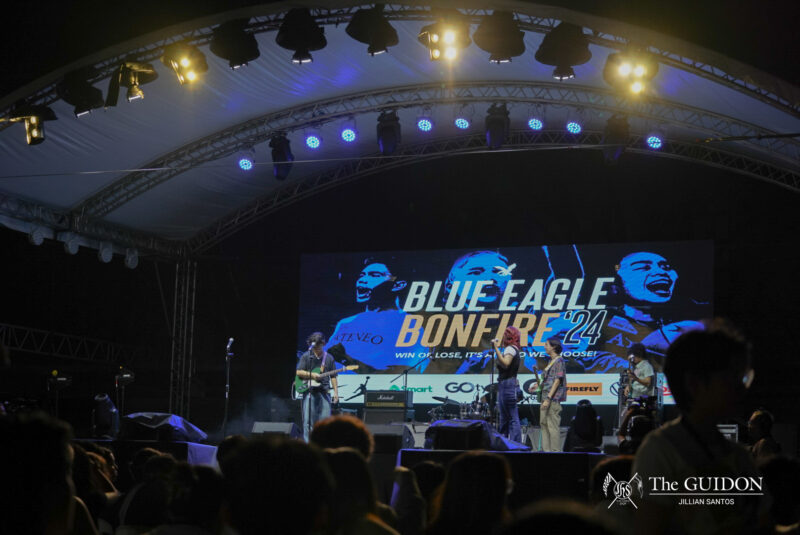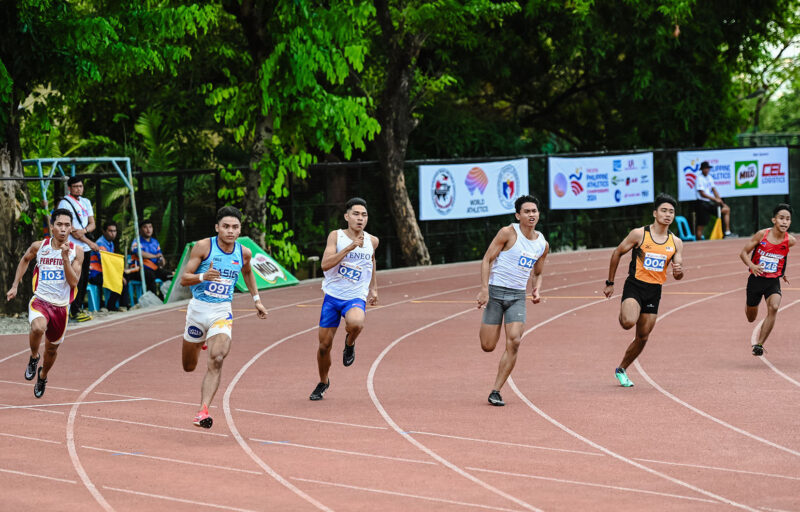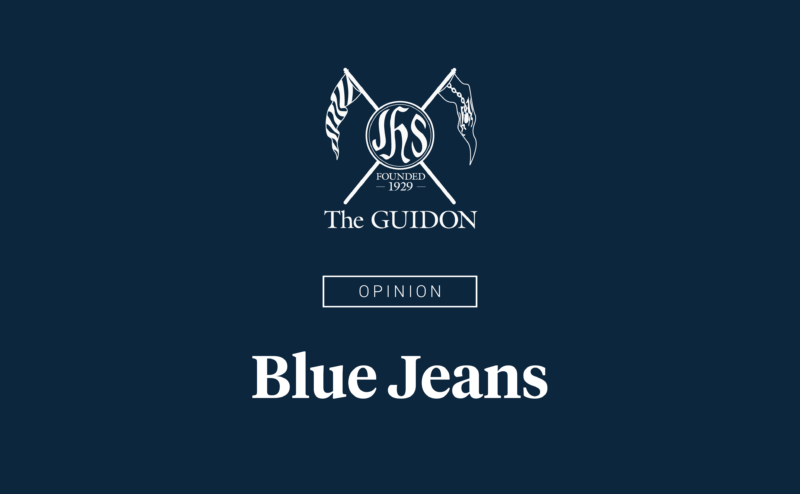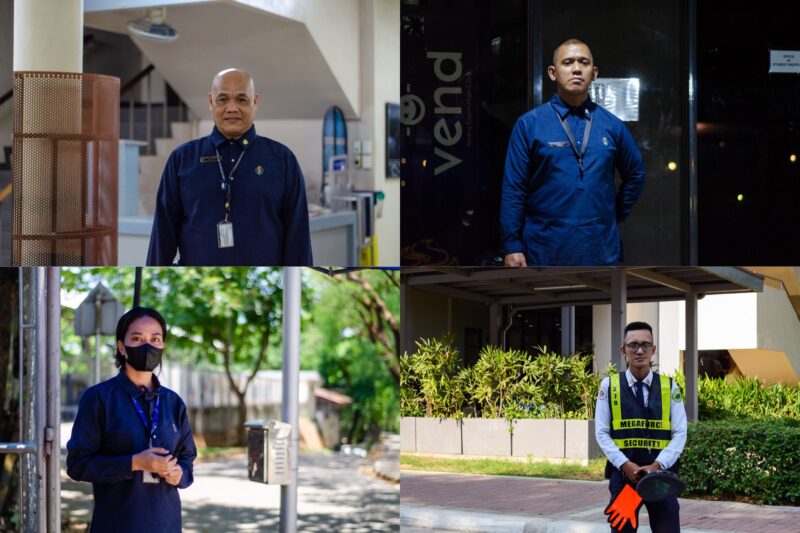HOPES WERE high for the crowd-favored Ateneo teams in the University Athletic Association of the Philippines’ (UAAP) 82nd season. However, the season came to an abrupt pause on March 10 when President Rodrigo Duterte declared a State of Public Health Emergency due to the COVID-19 pandemic. As Duterte placed the entire Luzon under enhanced community quarantine, the UAAP Board eventually canceled the remainder of the season on April 7.
While the future of the league remains uncertain, various Ateneo teams continue to train and condition at home in anticipation for the day they may once again represent the Blue and White.
Utilizing technology
In the meantime, video conference applications such as Zoom and Google Meet have become coaches’ and athletes’ most crucial assets in the abrupt shift to online training. The Men’s Judo Team, for instance, found that such platforms provided them an avenue to maintain dynamic training sessions during the quarantine.
Judokas meet via Zoom thrice a week to perform technique study and strength and conditioning workouts. During the calls, coaches would demonstrate various workouts that the team would simultaneously perform. “We do this to keep our athletes in shape. We want to be prepared once everything resumes,” shared Men’s Judo Head Coach Ali Sulit.
Sulit also shared that online training has enhanced the ability of his coaching staff to translate training materials and showcase this live. This allows judokas to easily ask guidance from their coaches, as well as nurtures a collaborative training environment where the entire team is able to learn from shared feedback.
Similar to the Men’s Judo Team, technology has also become an integral part of the Women’s Chess Team’s training. “Sobrang helpful [ng technology] kasi without it hindi kami makakapag-trainings (Technology is very helpful because without it, we wouldn’t be able to train),” Team Captain Merlene Membrere stated.
Membrere shared that Zoom, Google Classroom, and Blackboard have been their go-to applications for their training sessions. During a session, team members would enter a Zoom meeting and a virtual room in either Google Classroom or Blackboard wherein their coach would introduce chess problem sets that the team must solve together.
Competitions for the Women’s Chess Team have also transitioned online with ease. Websites such as Lichess allow the team to continue playing and competing as usual, with the only difference being the inability to see their opponents face-to-face.
Similarly, the arnis community has continued competing online. According to Ateneo College Arnis Varsity Team (ACAVT) Assistant Head Coach Ryan Gialogo, the sport has held three online competitions since the quarantine began in March. Arnisadors primarily competed in the Anyo or form category, where they demonstrated their technical proficiency through routines.
To compete, arnisadors simply film themselves performing an Anyo routine and submit their clips to the tournament officials for judging. Gialogo has welcomed this development since Laban or full combat competitions typically occupy a large segment of the tournaments.
Growing pains
Despite its merits, the online shift brings an equal amount of difficulties to the athletes. For example, on-site training is crucial for combat sports like judo because of pair training’s importance in their workouts. However, as judo training sessions moved online, pair training has become impossible. Consequently, the diversity of the team’s workouts has been limited.
“Dati tamang mix of theoretical and practical. (Before, it was the right mix of theoretical and practical). Now, technique study and strength and conditioning lang. Practical, mostly strength and conditioning lang,” shared Sulit. To overcome this, the judo coaching staff incorporates judo movements into the workouts to make them relevant to the sport.
As for the Women’s Chess Team, most team members lack stable internet connection in their respective home provinces. Membrere cited that the difficulty caused by slow internet connection is most evident during online chess tournaments. “Kung nagbuffer yung internet, eh sa chess may time limits, so may possibility na mababawasan yung oras mo since mas delayed yung loading ng page,” she said.
(Chess has a time limit. When the internet buffers, there’s a possibility that your time will be decreased since your page loaded slowly.)
Gialogo also noted that the ACAVT has yet to conduct a video conference training session as of June 12 due to weak internet connection on his end. In the meantime, coaches send training materials through the team’s group chat. A confident Gialogo shared that every team can already train on their own without needing constant guidance. “Wala nang baguhan [sa team] (There are no more beginners in the team),” he explained.
Aside from the adjustment period to training online, poor internet connection and limited physical resources have directly affected the efficacy of various teams’ training and performance in competitions.
Unwavering support
More than these limitations, a seemingly greater challenge for athletes is the mental stress of uncertainty brought by the COVID-19 pandemic. The lack of a clear timetable, coupled with the other uncertainties of the pandemic, has caused a lack of motivation for athletes such as incoming fifth year student and arnisador John Gabriel Rivera.
With the adverse effects of the COVID-19 pandemic affecting his mental well-being, Rivera believes that training is a way to stay busy and keep his mind off the current national situation. “We really have to force ourselves to be productive. That’s really what we need to focus on amidst this pandemic,” he asserted.
UAAP Season 82’s Men’s Judo silver medalist Ralph de Leon shared similar sentiments. For him, the team’s triweekly training sessions bring him a sense of normalcy and allow him to keep in touch with his teammates. “The video cameras really allow us to have the interaction pa rin and to push each other as we usually do during physical trainings,” said de Leon.
As the COVID-19 pandemic takes its toll on athletes’ mental health, it becomes crucial for coaches to be proactive in ensuring each athlete’s well-being. For veteran coach Gialogo, constant contact with the team is at the forefront of his approach.
He asserts that consistently doing sports and training is one way for the team to combat personal unrest and depression. “Sa training, you release endorphins. So nakaka-alleviate ng depression. So sa GC, it’s a constant reminder to do training. Minsan may mga tinatamad, so we encourage them sa GC,” explained Gialogo.
(When training, you release endorphins. That alleviates depression. So in the group chat, it’s a constant reminder to do training. Sometimes, there are people who don’t feel like training, so we encourage them in the group chat).
On Sulit’s part, he makes sure to keep the training sessions fun and exciting. “I try to be very creative with the routines. If [the routines are the] same lang palagi (always the same), it’s gonna be boring.” The judo coaching staff also makes it a point to keep the athletes engaged by consistently sending a mix of judo-related videos and lighthearted banter in the team’s Facebook group. According to Sulit, the athletes have been appreciative of these efforts as the training sessions and the sense of community give them a peace of mind.
One big fight forward
As mentors of their respective teams, coaches hold the immense responsibility of keeping their athletes healthy throughout this COVID-19 pandemic. Through their efforts, coaches ease the teams’ burden of transitioning to a new normal.Sports may have taken a backseat in this unprecedented time, but various Ateneo sports teams have taken this challenge head on. Teams have effectively utilized technology to train and condition themselves at home while working together to foster mental well-being. These developments have allowed UAAP President Em Fernandez to proudly share during a recent online forum, “Sports never stopped.”







